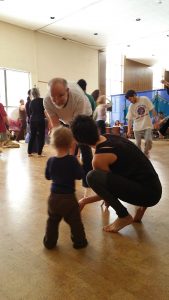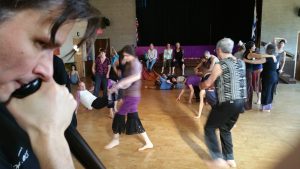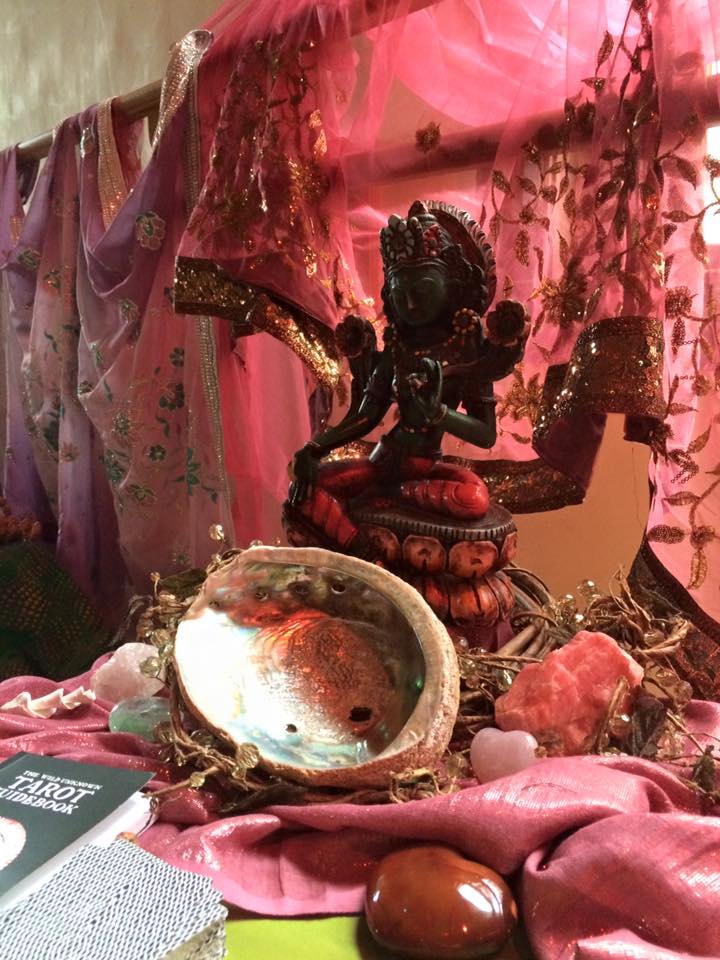 Yang Considerations
Yang Considerations
- Don’t assume that others want to dance with you. Some people may respond to your advances and dance with you when they’d actually prefer to be left alone.
- Pay attention to body language and non-verbal cues. Observing eye-contact, facial expressions, body language and body position will help you negotiate interactions.
- To avoid confusion, ask directly: “Would you like to dance?” If the answer is “no,” don’t take it personally. Embrace it as an opportunity to cultivate trust. Perhaps in the future you can ask again when that person is more receptive.
- If you want the freedom of remaining non-verbal, then realize that others may want the same freedom to refrain from setting a verbal boundary with you that may be awkward or cause tension.
-

Moving slowly helps cultivate trust. Dance by yourself at first, then later try inviting a variety of partners to dance slowly with you. This helps those who have declined your invitations in the past to trust you more, and perhaps accept your future invitations.
- Timing is crucial when touching acquaintances or strangers. Always ask before touching, massaging, or attempting Contact Improvisation. Be aware of others around you.
- Try letting go of attachments. You don’t really need to dance with any particular person. There is plenty of time. While remaining true to yourself, try embracing slightly uncomfortable situations. Slowing down, dancing alone, and being quiet can be magically powerful and transformative.
Yin Considerations
- Don’t assume that others can read your mind. If you’re not dancing, sit or lay close to a wall. The clearer you are with your non-verbal cues, the easier it is for everyone.
- If someone misses your non-verbal cues, experience the delight of setting a verbal boundary. When you have the courage to express yourself verbally, even though it may be awkward or cause tension, your clarity helps everyone.
- If you want the freedom of remaining non-verbal, then realize that others may want the same freedom of not having to risk rejection when they ask you to dance.
- An action you experience as an aggressive or unwanted advance may possibly be someone’s playful or communal attempt to interact with you.
- If you need support, you can share your concerns with one of the Temple Keepers, facilitators, or organizers on duty. In some cases, they can intercede on your behalf.

- If you’d like to give feedback or make requests anonymously, you can write a note to one of the organizers on duty, and leave it with the clipboard near the donation basket.
- Accidental contact is natural, so don’t take it personally.
- Try practicing accepting what comes. While remaining true to yourself, try embracing slightly uncomfortable situations. Being loud, expressive, and interacting with group energy can be magically powerful and transformative.

